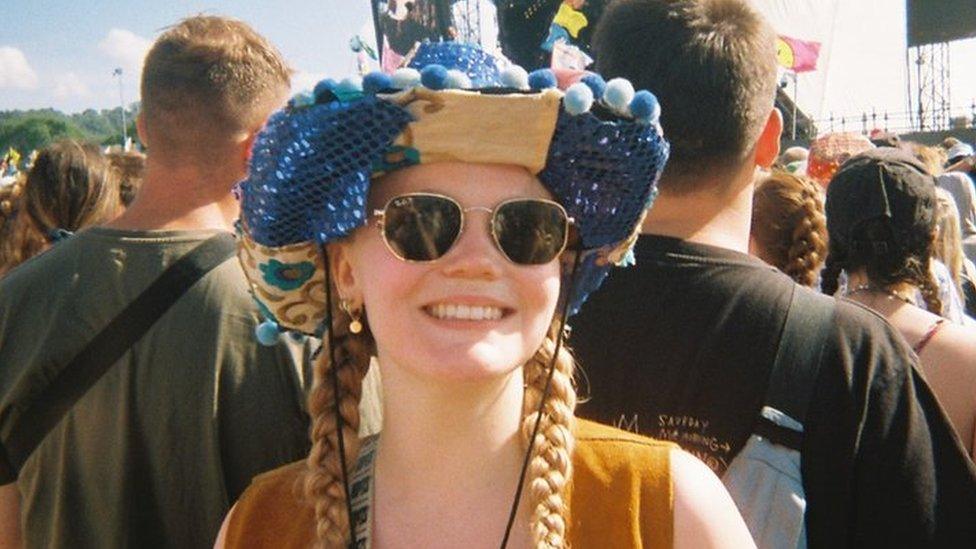Sober lifestyles: 'I can still be confident on orange juice'
- Published
Sophia Downes, 26, gave up drinking six months ago
A third of people under 25 have not drunk alcohol for at least a year, a recent NHS study has shown. The BBC spoke to people who have turned their backs on drinking and heard how they are navigating the pressures of sobriety.
As the party season in December intensified for Polly Keiller, drinking and the dread of hangovers began to take over her life.
The criminology student missed interviews, course deadlines and family events and, as she fully immersed herself in university lifestyle, she was drinking almost every day.
It was after what should have been fun nights out left her feeling "embarrassed and upset" with no memories of her evenings she decided to give up alcohol entirely.
The 23-year-old realised she could turn her life around when she started volunteering at The Sober Parrot, an alcohol-free venue in Cheltenham.
"I had blacked out five nights in a row and I couldn't remember anything... my priorities were awful," she said.
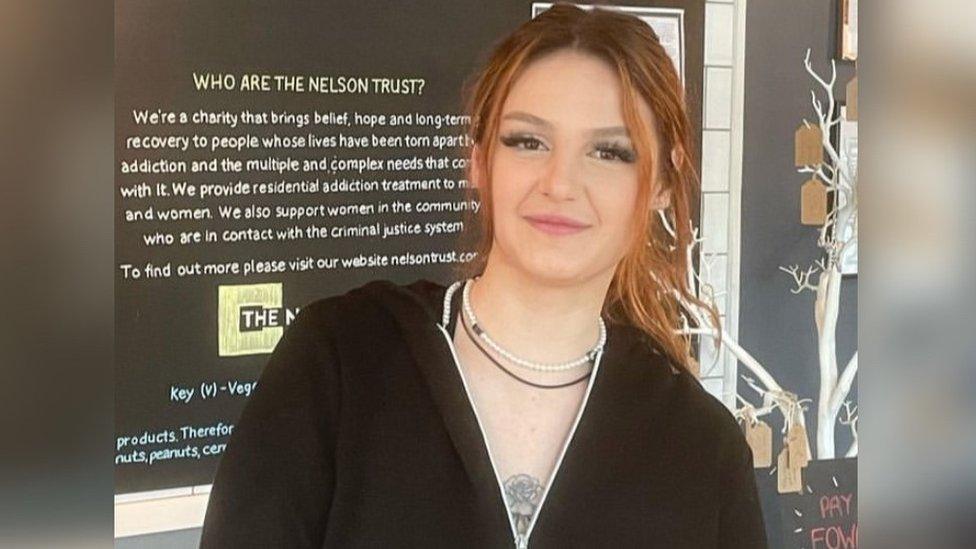
Polly works at the Sober Parrot and said she loved her non-drinking lifestyle
Polly is among a growing number of people reducing or stopping their alcohol intake. But she said there was still a big pressure to drink at university.
"My boundaries have been crossed multiple times and left me in situations that have felt demoralising and pressured me into drinking," said Polly.
The expectations meant Polly initially struggled to get her "drinking buddies" to support her decision and her sobriety was mocked by co-workers at a different bar.
As the months have gone on, however, she said friends had started to slow down their alcohol consumption too.
"I do a lot more in the day now, I'm meeting deadlines, I've made less questionable decisions and have managed to lose weight," she said.
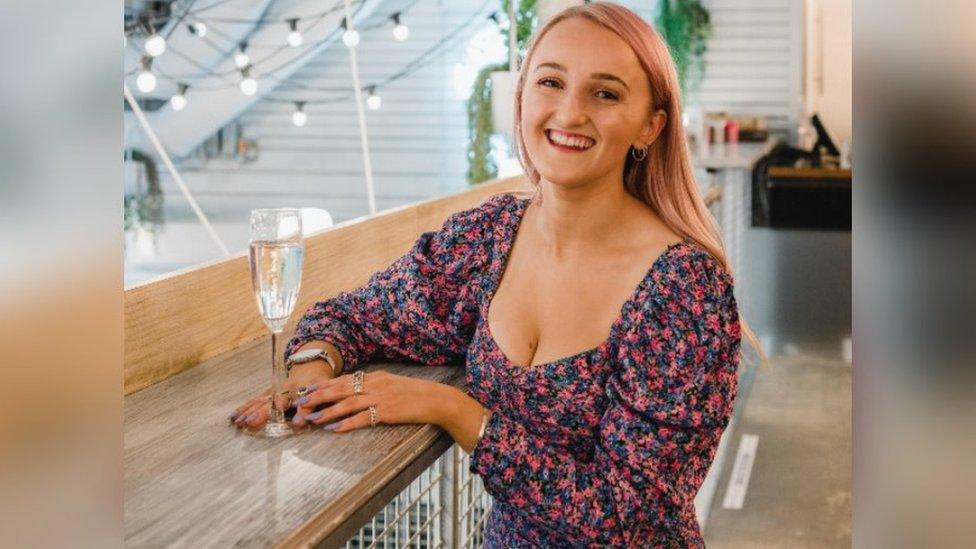
Millie Gooch started Sober Girls Society to feel less isolated when she stopped drinking
She is not alone. According to the 2021 Health Survey for England, external, published in December, 38% of people in the 16-24 age bracket said they had not had alcohol in the previous year. That is up from 19% a decade earlier.
As more people stop drinking, demand is growing significantly for sober communities such as Sober Girls Society.
Millie Gooch, 31, is from Kent and started the group in 2018 after feeling "isolated" when she stopped drinking.
She was 26 when she decided to quit after a night out because she was fed up of feeling low.
"I was really struggling, I didn't enjoy my life and I was miserable," Millie said.
"The misconception that young sober people are boring can be such a barrier [to stop drinking]."
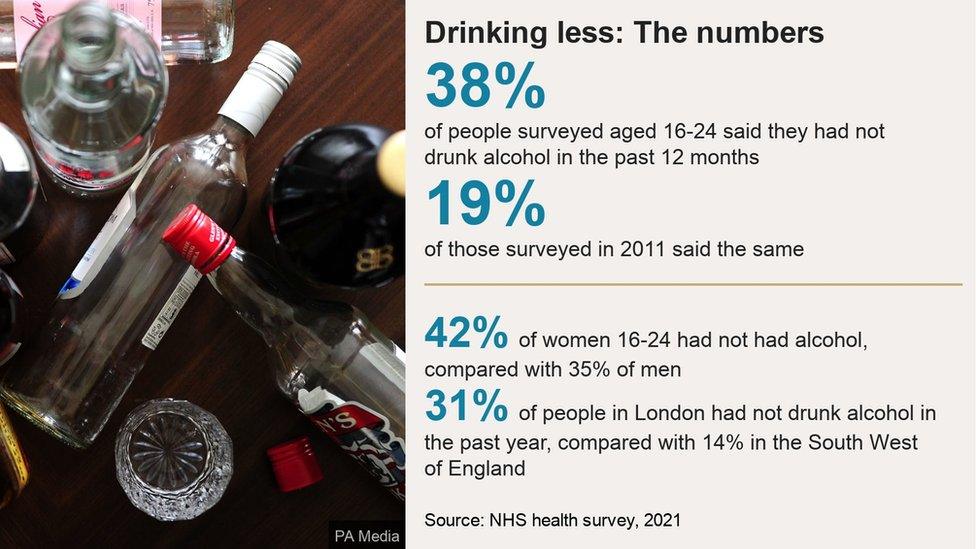
Sober Girls Society has held more than 200 events to connect women across the UK. They include classes to improve confidence on the dancefloor while sober.
Virgin mojitos are served at their "bottomless boozeless" brunches, providing a space to meet new people without feeling awful the next day.
Liv Callaghan, from Birmingham, is one of the many social media influencers sharing their sobriety journey with the world.
The 30-year-old, who also has Bipolar disorder, stopped drinking four years ago when she had a "horrific" panic attack in a club.
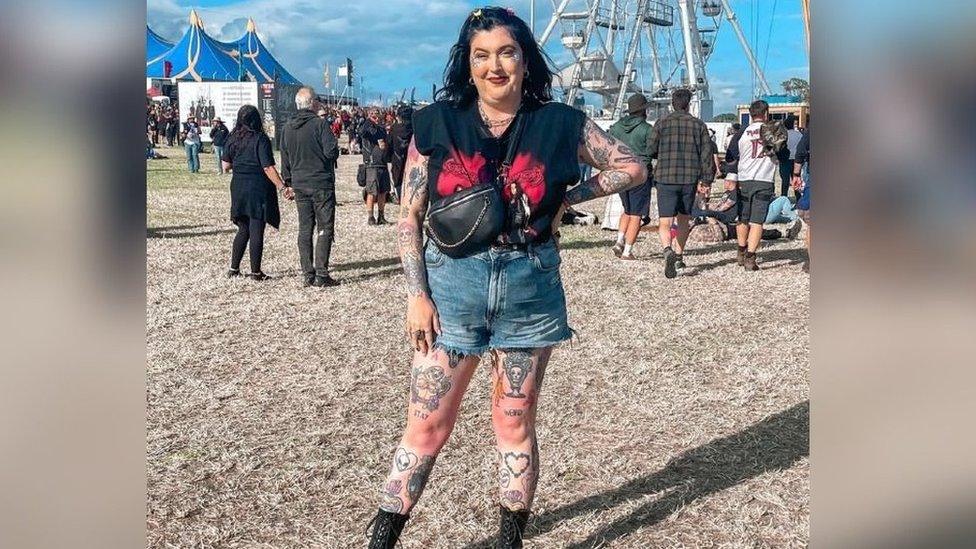
Liv wants to increase awareness of how alcohol can affect people's mental health
Liv, known as Self Love Liv, said she had found she was drinking "purely to numb" her emotions.
She said there was a perception people who stopped drinking were alcoholics, and added she wanted people to be more aware of how alcohol could affect their mental health.
"The joy of not having a horrific, suicidal hangover the next day is out of this world," she said.
"I can still have fun and be myself, and be confident on orange juice."
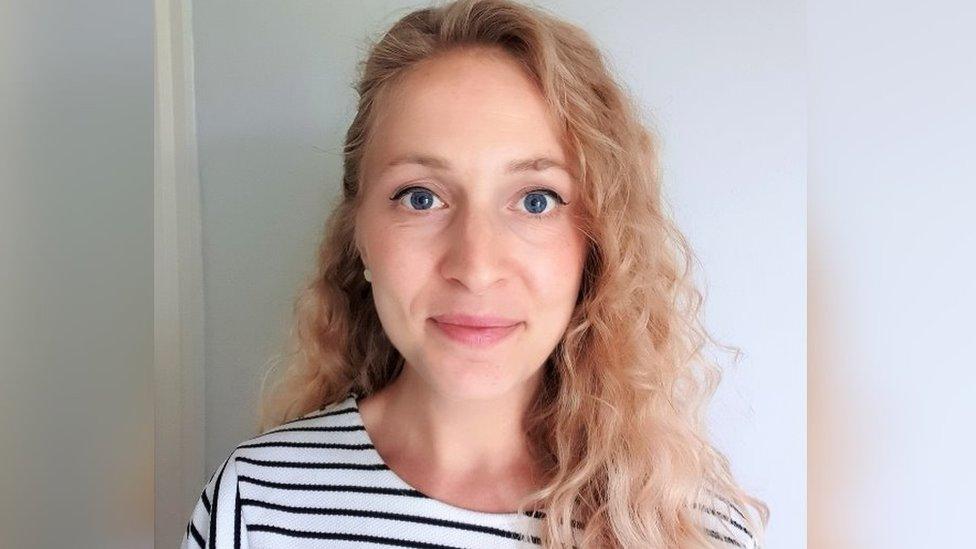
Hayley Trower has noticed a rise in demand for sobriety coaching in recent years
As attitudes around alcohol continue to change, more people are turning to sobriety coaches like Hayley Trower for help.
Coaching can help people understand their triggers for alcohol and learn techniques to manage cravings.
Hayley, 37, gave up alcohol when she was 31 after unsuccessfully moderating her drinking for many years. She decided to coach after experiencing a lack of support.
"I felt like I was in a grey area between a normal drinker and an alcoholic. There was no support that fitted the grey area that I was in," she said.
"I felt compelled to become a coach and to help as many people as I can, because I know how hard it can be and how alone you can feel."
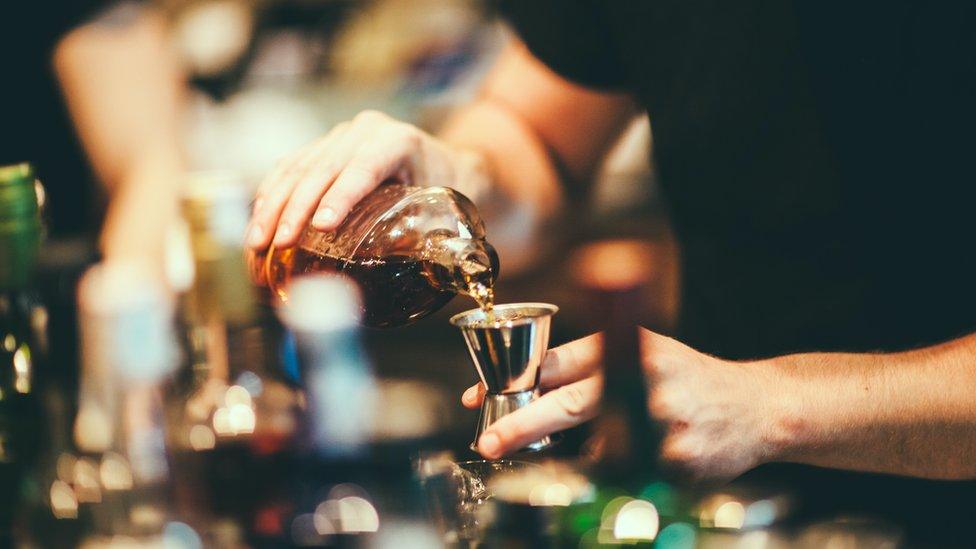
Tesco said popularity for low and no alcohol products had grown significantly in recent years
Supermarkets such as Tesco and Waitrose are also noticing a significant rise in alcohol-free shopping habits.
Hayley Easton, a spirits buying manager at Tesco, said shopping trends showed sales of low and non-alcoholic products had "grown significantly in popularity in recent years, especially with younger customers".

Tips on cutting down your alcohol intake
The NHS recommends setting a limit on your drinking before consuming alcohol and choosing smaller sizes.
It may be helpful to let your friends and family know you are cutting down so they can support you.
To help you stay hydrated, the NHS recommends alternating alcohol with non-alcoholic drinks.

Waitrose has expanded its non-alcoholic range by nearly 20% in response to an "all-time high" in customer demand.
The change in drinking habits is beginning to be reflected in pubs too.
The founders of alcohol-free beer brand Lucky Saint have opened a pub in central London that gives equal attention to alcoholic and non-alcoholic drinks.
Luke Boase said: "The idea you have to apologise for not drinking is fading and more people than ever are moderating year-round."
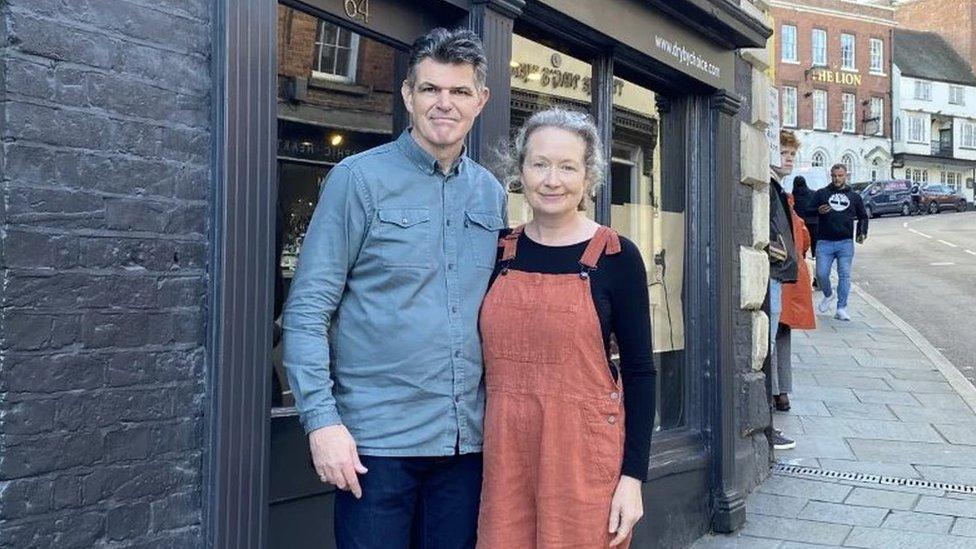
Mike Dalton has increased his alcohol-free range by nearly 30% as demand increases
Mike Dalton runs a shop in Shrewsbury, Shropshire, called Dry, which sells non-alcoholic products such as wine, cocktails and herbal aperitifs.
He said he had noticed a "massive" change in drinking behaviours since he had grown up and had increased his product range by nearly 30% since the shop had opened in October.
"These days many young people are looking for quality products and many alcohol free, rather than just something which gets them drunk quicker," he said.

Follow BBC West Midlands on Facebook, external, Twitter, external and Instagram, external. Send your story ideas to: newsonline.westmidlands@bbc.co.uk, external
- Published16 January 2023
